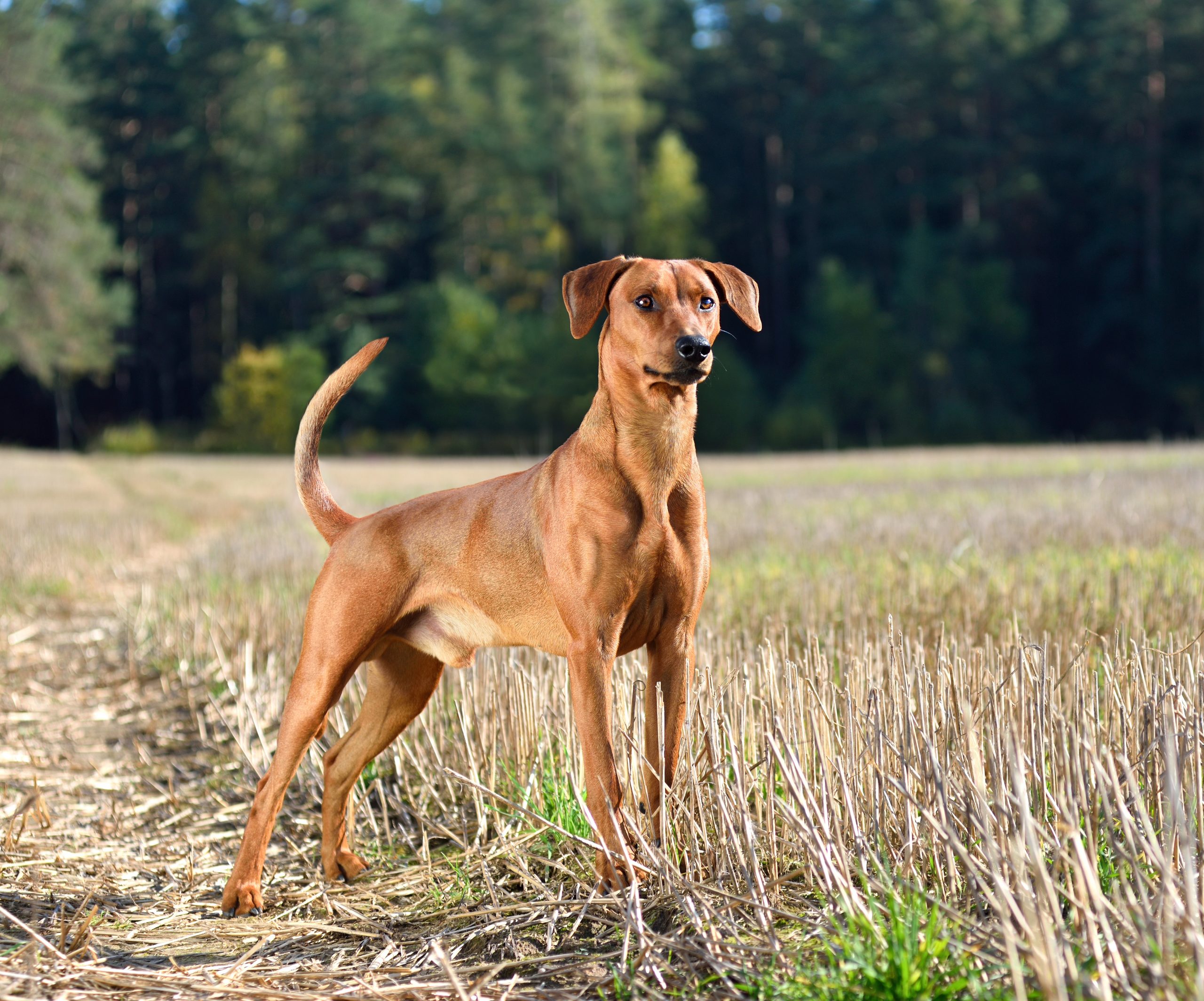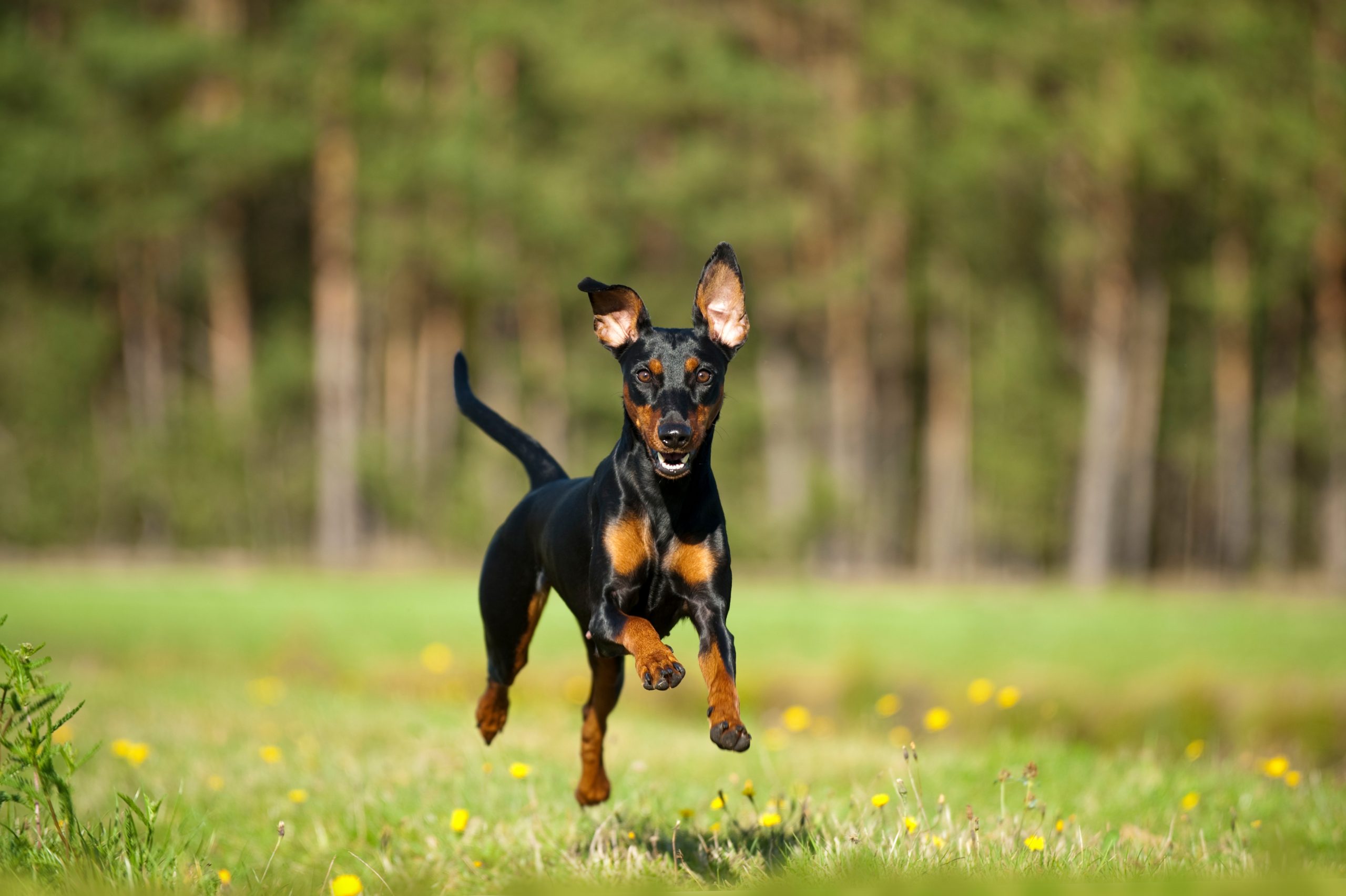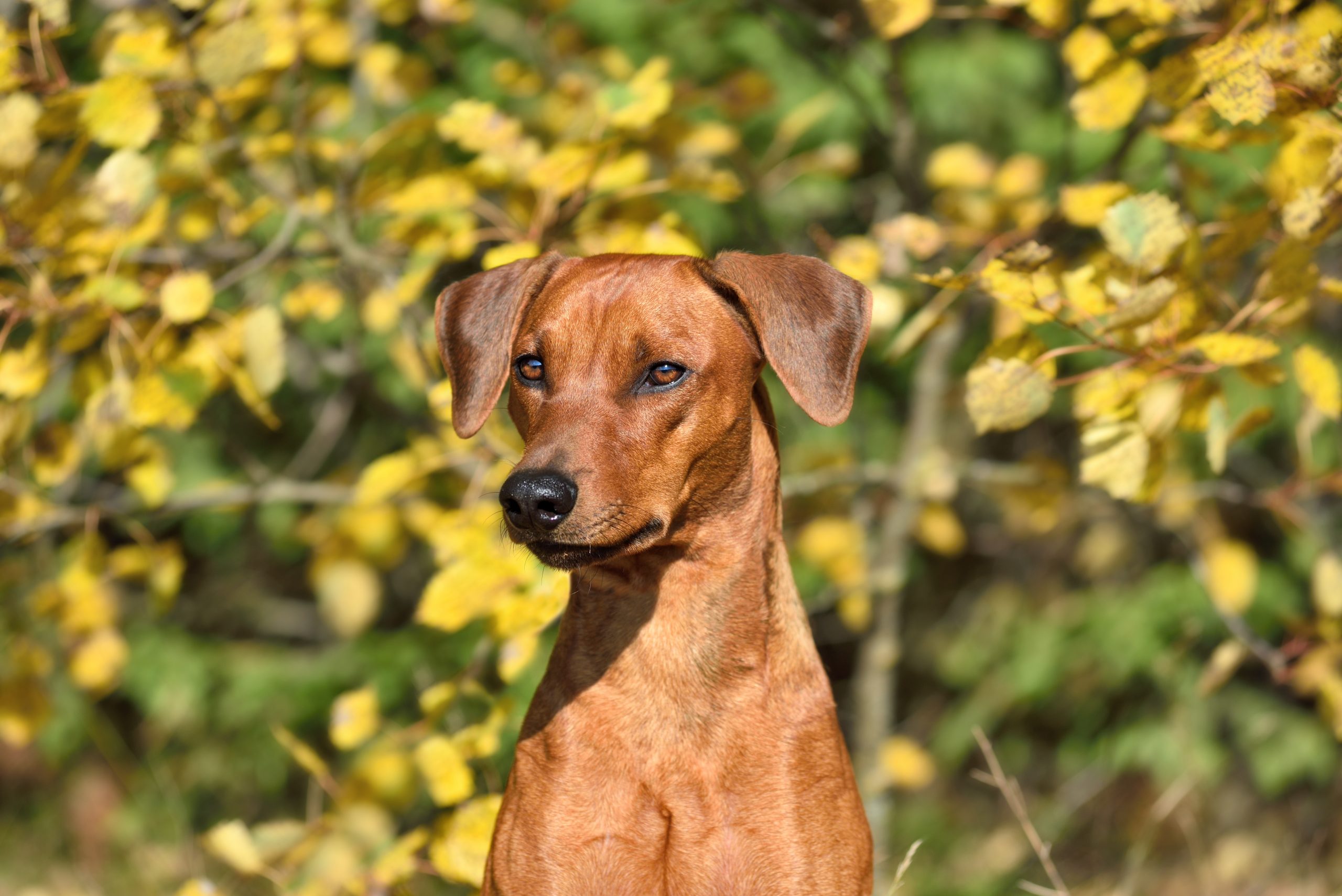German Pinscher
No products found which match your selection.
Shelter Dog Meal Donation Count:
No products found which match your selection.
The German Pinscher is an assertive and confident breed, originally bred for vermin hunting and guarding. They are known for their sleek appearance and versatile abilities in various dog sports and activities.
The German Pinscher is an assertive and confident breed, originally bred for vermin hunting, guarding, and as a versatile farm dog.

Originating in Germany, the breed has a history that dates back several centuries. They were prized for their rat-catching abilities and used as guard dogs.




Generally healthy, but prone to conditions like hip dysplasia and cardiac problems. Regular health screenings are recommended.
Their short coat requires minimal grooming. Regular brushing and occasional baths are sufficient to keep their coat clean and shiny.
High energy levels require daily physical and mental stimulation. They excel in activities like agility, obedience, and tracking.
Intelligent and sometimes strong-willed, they respond best to consistent, firm training using positive reinforcement methods. Early socialization is crucial.
A balanced diet is important for their size, age, and activity level. Portion control is key to maintaining their optimal weight.
German Pinscher is an excellent choice for active families or individuals looking for a loyal, energetic, and protective companion. With proper care, training, and nutrition, they can be a wonderful addition to any home.
The German Pinscher, known for its vitality and robustness, is generally a healthy breed, but like all breeds, can be predisposed to certain health issues. Awareness and appropriate health testing can aid in maintaining their well-being. Here's a list of common health issues in German Pinschers and the recommended tests for these conditions:
Ensuring that German Pinschers undergo these health tests can help in the early detection and management of these conditions. Regular veterinary check-ups, a balanced diet, and maintaining a healthy lifestyle, including appropriate exercise, are key factors in promoting the long-term health of German Pinschers.
The iHeartDogs Free Rx Discount Card Program is a pet prescription discount card that can help you save money on your furry friend’s medications. The card is free to sign up for, and you can use it at participating pharmacies nationwide. To use the free program, simply show the card to your pharmacist when you pick up your pet’s prescription. The pharmacist will then scan the card, and you will receive a discount on the price of the medication.LEARN MORE
Caring for a German Pinscher involves various expenses, and the total annual cost can vary depending on factors like your location, the dog’s individual health needs, and the standard of care you provide. Here’s a breakdown of the typical expenses involved in caring for a German Pinscher:
Total Estimated Annual Cost:
$2500 - $6800
It's important to note that these figures are estimates and can vary. Also, the first year of owning a dog can be more expensive due to one-time costs like spaying/neutering, initial vaccinations, and training. Regular budgeting for your dog's needs and an emergency fund for unforeseen costs are essential for responsible pet ownership.It's important to note that these figures are estimates and can vary. Also, the first year of owning a dog can be more expensive due to one-time costs like spaying/neutering, initial vaccinations, and training. Regular budgeting for your dog's needs and an emergency fund for unforeseen costs are essential for responsible pet ownership.